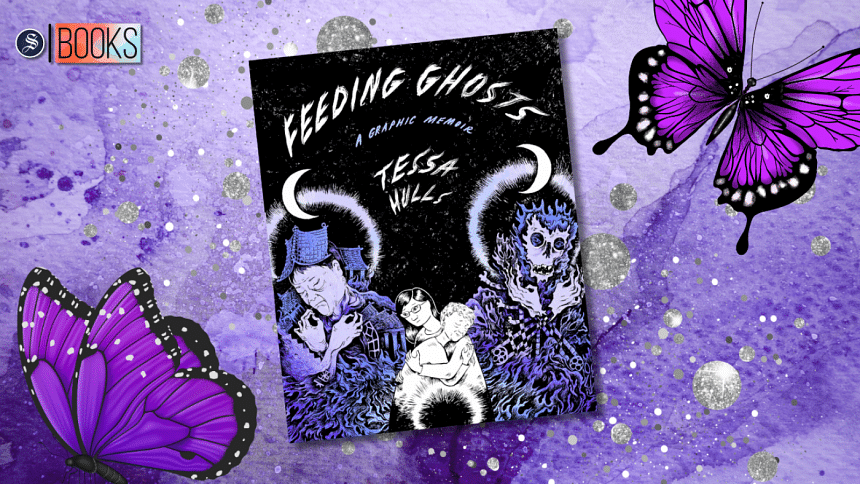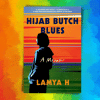Understanding generational trauma through 'Feeding Ghosts'

In recent years, graphic memoirs have surged in popularity, blending the storytelling features of memoirs and autobiographies with the visual illustration of graphic novels or comics. Within these pages, authors unfold their personal accounts, weaving together introspections, recollections, and emotions through a fusion of text and imagery. It is a genre that explores a myriad of themes—from individual identity and familial dynamics to cultural clashes and societal dilemmas. The visual component in a graphic memoir serves as a powerful amplifier, elevating the storytelling with layers of depth and raw emotion, offering readers an immersive journey through the author's lived experiences.
Adding to this diverse landscape is Tessa Hulls' debut graphic memoir, Feeding Ghosts (Farrar, Straus and Giroux, 2024), illustrated and written by Tessa Hulls and released just last month. In this evocative piece, Hulls tells the story of three generations of women in her family: her Chinese grandmother, Sun Yi, her mother, Rose, and herself.
Sun Yi, a Shanghai journalist caught in the political turmoil of the 1949 Communist victory, fled to Hong Kong with her daughter—after eight years of government harassment. Upon arrival, Sun Yi penned a bestselling memoir about her persecution and survival, used the proceeds to put Rose in an elite boarding school—and around the same time had a breakdown that left her committed to a mental institution till her last breath. Rose eventually came to the United States on a scholarship and brought Sun Yi to live with her. The author translated the Chinese memoir to English with her grant money as a means of understanding her grandmother, with whom she shared her love of writing and storytelling. But this novel only provided a silhouette, and Hulls began to understand that the stories that were fabricated as memories had a way of distorting and shifting shapes without us really grasping it.
Tessa watched her mother care for Sun Yi, and they both struggled under the weight of Sun Yi's unexamined trauma and mental illness. Vowing to escape her mother's overwhelming fear, Tessa left home and travelled to Antarctica in her efforts of getting far away from her family. A few years later, she began to feel less free, but she rediscovered herself and took jobs that interested her. Slowly, she realised that she needed to stop running and return home to embrace the history that shaped her family.
Extensively researched and strikingly rendered, Feeding Ghosts is Hulls' homecoming—a vivid journey into the beating heart of one family, set against the dark backdrop of Chinese history. In my opinion, Hulls does a tremendous job of giving readers a peek into the international politics and relations that encompasses China, Hong Kong, Taiwan, UK, and the USA—from the 50s till present. She also paints a picture of the various similarities and differences between the cultures in the East and the West. Alternatingly intriguing and heart-breaking, this graphic memoir exposes the love and cultural roots that hold the family together, as well as the fear and trauma that haunt generations.
The graphic novel format allows Hulls to skilfully blend words and images to convey his emotions and memories with striking depth. Through its narrative arc spanning generations, the memoir offers a profound understanding of intergenerational struggles and resilience, touching on themes of trauma, mental illness, and the contradictory but lasting impact of historical events in one's life.
Indeed, generational trauma is a force that quietly shapes our lives, and Feeding Ghosts promises to offer readers a profound exploration of the genre in discourse. As someone who has experienced generational trauma first-hand, I believe this memoir has the power to resonate deeply with readers, offering insight into the complexities of our shared human experience. I owe reading this book to the agent of Feeding Ghosts, Anjali Singh, who had been kind enough to hear my story with patient ears and in turn suggested that I read this particular graphic memoir, which tapped into my interests and helped me find solace in the narrative.
Salwah Chowdhury is a bookworm and a creative writer. She loves the rush of thinking, reading and writing. Please follow her on Instagram @salwah_chowdhury and share any book recommendations or DM her to strike up a bookish conversation.

 For all latest news, follow The Daily Star's Google News channel.
For all latest news, follow The Daily Star's Google News channel. 









Comments